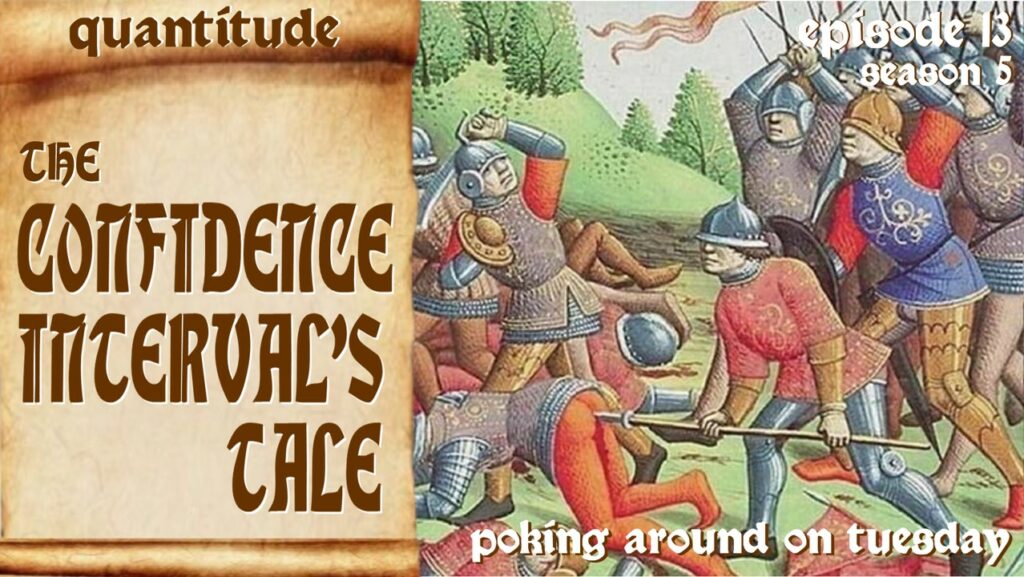In this week’s episode Greg and Patrick talk about confidence intervals: symmetric and asymmetric, asymptotic and bootstrapped, how to interpret them, and how not to interpret them. Along they way they also discuss tire pressure gauge mysteries, conference travel reimbursement, phases of the moon, gyroscopic effects, baseball walk-of-shame, why people hate us, settling out of court, confidence tricks, Mack JcArdle, Shakespearean means, lipstick on a pig, the cat rating scale, the Miller’s Tale, hot pokers, inverse hyperbolic tangents (duh), and Quantitude out-takes.
Related Episodes
- S4E16: Discovering the False Discovery Rate
- S3E21: A Low-Resolution Discussion of Sampling Distributions
- S2E11: The Replication…Dilemma with Samantha Anderson
- S2E10: Type I Terror
Suggested Readings
Altman, D., Machin, D., Bryant, T., & Gardner, M. (Eds.). (2013). Statistics with confidence: confidence intervals and statistical guidelines. John Wiley & Sons.
Belia, S., Fidler, F., Williams, J., & Cumming, G. (2005). Researchers misunderstand confidence intervals and standard error bars. Psychological Methods, 10, 389.
Cumming, G. (2014). The new statistics: Why and how. Psychological Science, 25, 7-29.
Cumming, G. (2009). Inference by eye: Reading the overlap of independent confidence intervals. Statistics in Medicine, 28, 205-220.
Cumming, G. (2008). Replication and p intervals: p values predict the future only vaguely, but confidence intervals do much better. Perspectives on Psychological Science, 3, 286-300.
Cumming, G., Fidler, F., Kalinowski, P., & Lai, J. (2012). The statistical recommendations of the American Psychological Association Publication Manual: Effect sizes, confidence intervals, and meta‐analysis. Australian Journal of Psychology, 64, 138-146.
Pfister, R., & Janczyk, M. (2013). Confidence intervals for two sample means: Calculation, interpretation, and a few simple rules. Advances in Cognitive Psychology, 9, 74.
Tibbe, T. D., & Montoya, A. K. (2022). Correcting the bias correction for the bootstrap confidence interval in mediation analysis. Frontiers in Psychology, 13, Article 810258.

